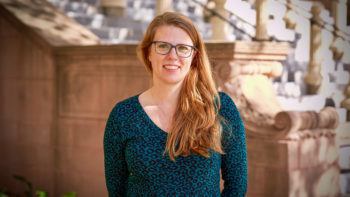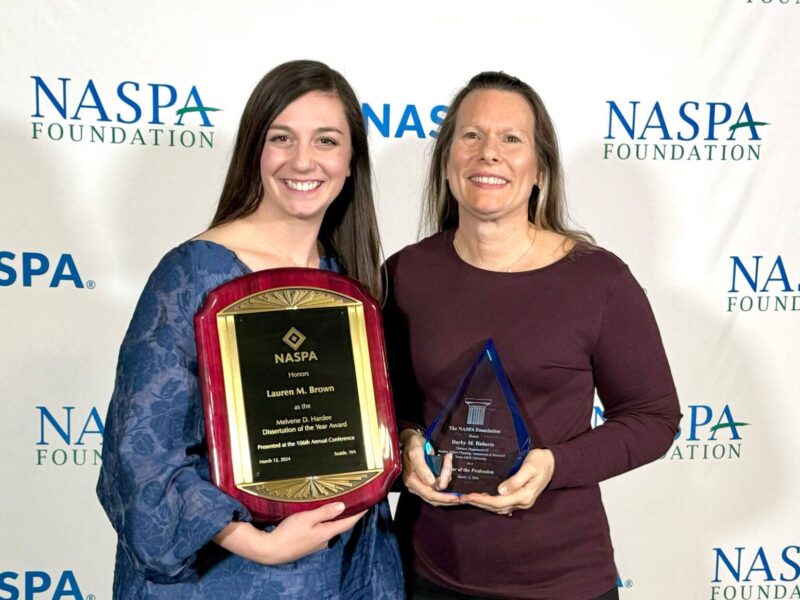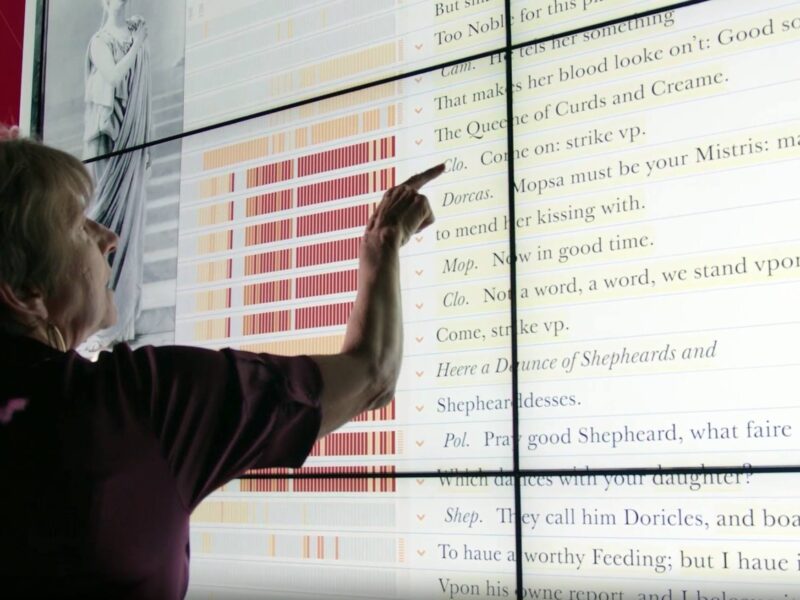Pentzer Named 2021 ‘Rising Star’ By American Chemical Society

Emily Pentzer, associate professor in the Department of Materials Science and Engineering and the Department of Chemistry at Texas A&M University, has been named a recipient of the 2021 Rising Star Award by the American Chemical Society’s (ACS) Women Chemists Committee (WCC).
Pentzer received this honor for her significant contributions to the field of polymer and materials science, training and educating students and postdocs, and her service to the scientific community. Her research focuses on applying fundamental organic chemistry reactions to architect new structures for diverse energy related applications.
“I was beyond excited to hear that I was selected as an ACS WCC Rising Star, and that I’ll join the impressive list of previous awardees,” Pentzer said. “I’m grateful to my current and former group members for choosing to work with me and for creating a foundation from which to grow our research successes.”
Her group has pioneered the use of 2D particles as surfactants for nonaqueous emulsions, and used this platform to encapsulate “active” liquids, such as ionic liquids and perfluorinated gases. One of Pentzer’s current projects aims to utilize 3D printed phase change materials to include built-in heat storage for temperature regulation of existing and new infrastructures.
The products have applications in carbon dioxide uptake, solvent purification, imaging and energy storage. Her other areas of research include polymer-based optical data storage in a quaternary code, development of new polymer chemistries and 3D printing of multifunctional materials for pressure and gas sensing or thermal energy management. Her cross-disciplinary research is enhanced by collaborators across science and engineering.
“Members of my lab come from many different scientific backgrounds, which makes it fun for us to think about different ways we can approach research problems,” Pentzer said. “We are always inspired by a specific application, we then architect new structures with enhanced performance.”
The annual WCC Rising Star Awards recognize up to 10 exceptional women from all disciplines of chemistry. The awards were established in 2011 to help support careers in science, and is open to female ACS members working in all sectors of chemistry and chemical engineering.
An award symposium will tentatively be held on April 7, when recipients will speak at the annual ACS meeting.
This article by Dharmesh Patel originally appeared on the College of Engineering website.





